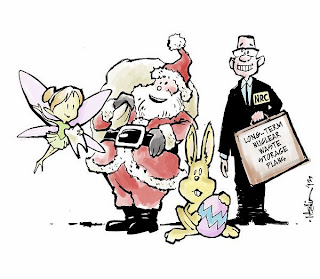William Matson was fond of the
name “Lurline” from the time in the 1870s when he served as skipper of Claus
Spreckel’s yacht of the same name. It was while skippering that yacht that
Matson met his wife Lillie who later gave him a daughter. The young girl was
named Lurline.
A few years later Matson went
into business for himself with a schooner named the Emma Claudina. Matson used
the schooner to ferry supplies and a few passengers to Hawaii and returning
with cargos of Spreckel’s sugar. Spreckel later sold Matson a 150-foot
brigantine, doubling his shipping operation. The brigantine was renamed the
Lurline.
Matson added other vessels to his
fleet and sold the brigantine to another company in 1896. In 1908 Matson built the
steamship he named Lurline. This steamer carried mainly freight but could hold
51 passengers along with 65 crew. The ship sailed in the Matson line for twenty
years.
Matson commissioned William
Francis Gibbs to design and build four smart liners for the Matson’s Pacific
services. In 1932 the last of these was launched and was promptly named the SS
Lurline. She was christened on July 12, 1932 in Quincy, Massachusetts.
It was on this day in 1941 as President
Roosevelt was attending a delayed Thanksgiving dinner with patients of the
Polio Institute that the Lurline was steaming on its regular route from San
Francisco to Honolulu. Roosevelt was notified that a radio signal was received
from the Lurline alerting of the sighting a Japanese war fleet. Radio signals
identified as Japanese were monitored
over the next four days until the Lurline docked at Honolulu Harbor.
Lurline departed on schedule and
was halfway from Honolulu to San Francisco on December 7, 1941 when the Japanese
bombed Pearl Harbor. The Lurline made her destination safely, travelling at
maximum speed, and soon returned to Hawaii as part of a convoy carrying troops
and supplies. Lurline spent the rest of the war serving the U.S. Navy in the
Pacific providing similar services, often voyaging to Australia, and once
transported Australian Prime Minister John Curtin to America to confer with
President Roosevelt.
After the war the Lurline
returned to the profitable first-class only routes she sailed before, continuing
this service into the early 60s. In 1962 she arrived in Los Angeles with
serious engine trouble. The repairs considered too expensive and was sold 1963.
Repaired and rechristened in 1963 by Chandris Lines as the MS Ellinis, the former
SS Lurline became one of the most important luxury cruise ships on the
Australian and New Zealand services. She operated in Australasia and Oceania
until 1980.
In October 1981, after providing
passenger services for nearly fifty years she was finally laid up in a Greek
shipyard. Various plans were hatched to utilize the ship whole, but finally she
was scrapped in Taiwan in 1987. The heart of the Lurline lives on as some of
her fittings were installed in other ships and her engine parts were stored
against future need by her aging sister ship; the former Monterey.
###









































































